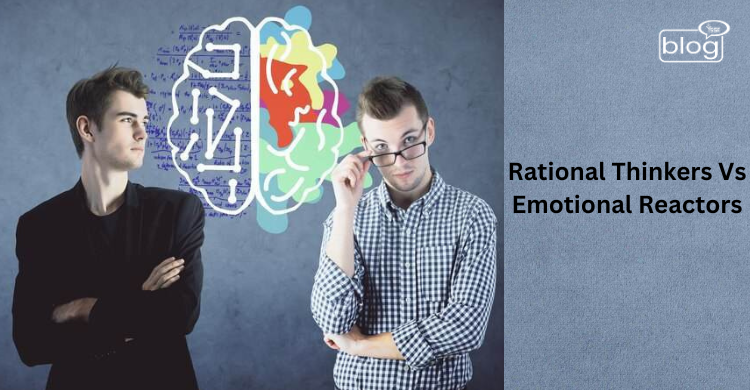In our daily lives, we always face situations where we have to choose or decide. Our approach or thinking when we face these situations can determine the outcome. Our thinking is quite interesting. It affects our surroundings. Our relationship with people, their perspective of us, and even our interaction with people are determined by our thoughts. Do you know what type of thinker you are? Rational thinker or perhaps emotional reactor.
What’s it like to be a Rational Thinker
A rational thinker likes to make decisions based on logical reasoning. Their decision-making core lies in analytical mindsets. They prioritize logic, reason, and evidence over emotion. Gathering information, and weighing pros and cons are the motto of a rational thinker. We rarely see a rational thinker acting on a whim. Emotions and gut feelings are discarded by them.
Benefits of rational thinking
Improved decision quality: Relying on logic and evidence, rational thinkers tend to make well-informed decisions. Which often yields positive results.
Consistency: Rational thinkers follow a pattern in decision-making. Which reduces the possibility of making irrational actions.
Problem-solving: The analytical nature of rational thinkers makes them adept at solving complex problems. They can often find innovative solutions.
Limitations: Rational thinkers are not absolute. They also have limitations. Over-reliance on logical analysis can make them confused in some analyses. Too much information sometimes slows down the process. Many problems or behaviors are encouraged by emotions. Neglecting emotions or not giving proper emphasis can often lead to a decision that lacks empathy and fails to consider the human element.
Emotional thinker: The emotional reactor or thinker makes decisions based on their feelings and instincts. Their states of mind, such as joy, anger, fear, and sadness influence their choice. While this approach may seem whimsical or unreliable they also bring more joy to the person involved. Emotional reactors make decisions based on their need and the needs of the close person involved. Thus they have better relationships with others than rational thinkers.
Benefits of emotional thinking
Human connection: Emotional thinker tends to consider emotion in making decisions. Thus they foster deeper connections and stronger relationships.
Quick decision: In critical situations where time is not much left, relying on intuition and emotion people can make swift and decisive action.
Motivation: Emotions are always a powerful source of motivation. They can drive people to pursue their goals with more vigor and determination.
Limitations: Emotional thinking is not without its flaws. Emotional thinking also has its own limitations. Decisions made in the heat of the moment often lack comprehensive consideration. This leads to having less resolve in the long run. Which can lead to regrettable outcomes. And, emotions can also be triggered or influenced by temporary states and thus inconsistent decisions are often made.
Every coin has two sides. Rational thinkers and emotional reactors both have their pros and cons. To live soundly we need to combine them to make sound decisions in the future. Too much rationality results in a lack of empathy and too much emotion causes disturbances in our life. That’s why we need to mix them and use them appropriately.
to read more blogs, click here
Writer
Samsul Alam Roni
Intern, Content Writing Department
YSSE

